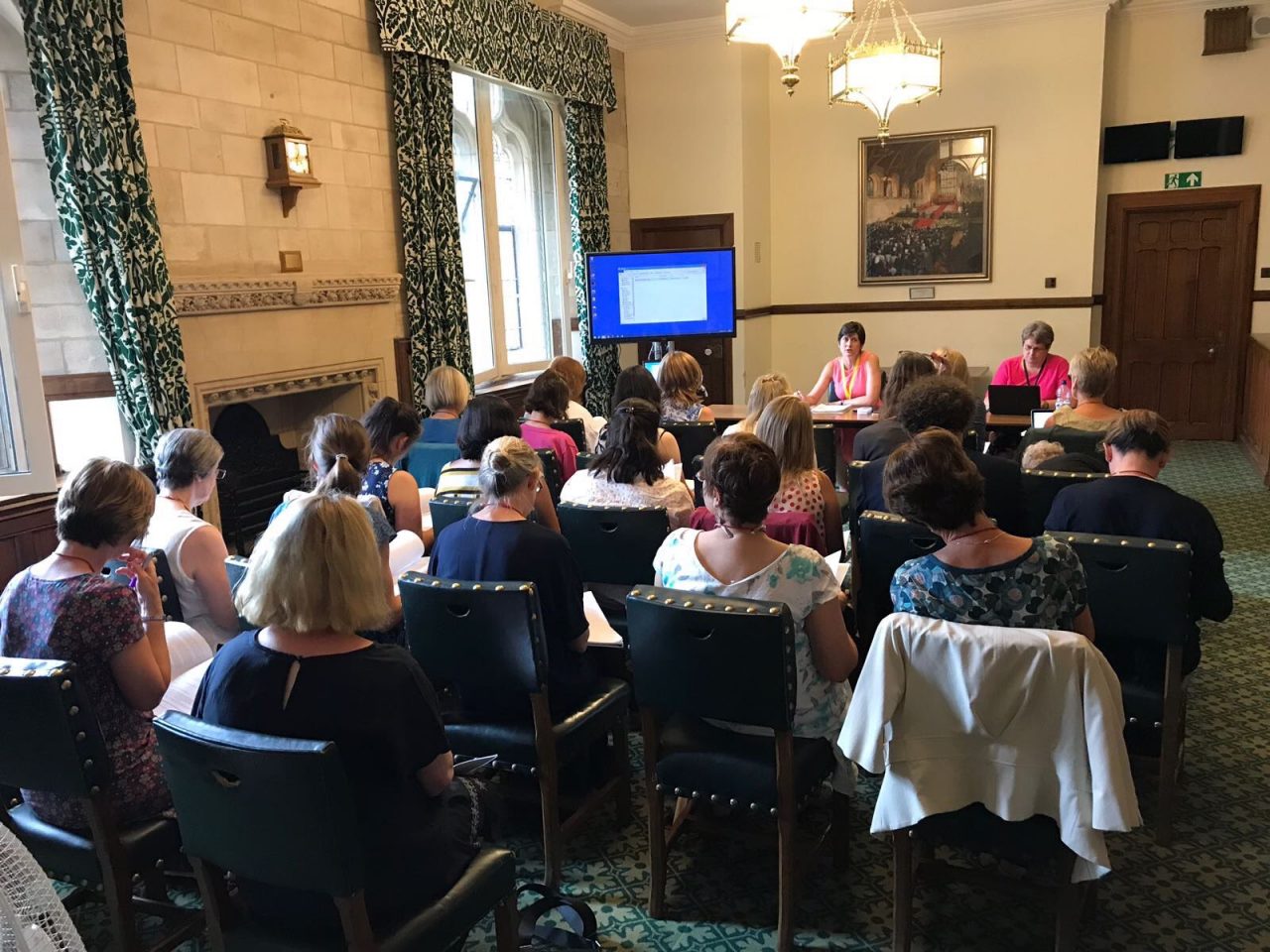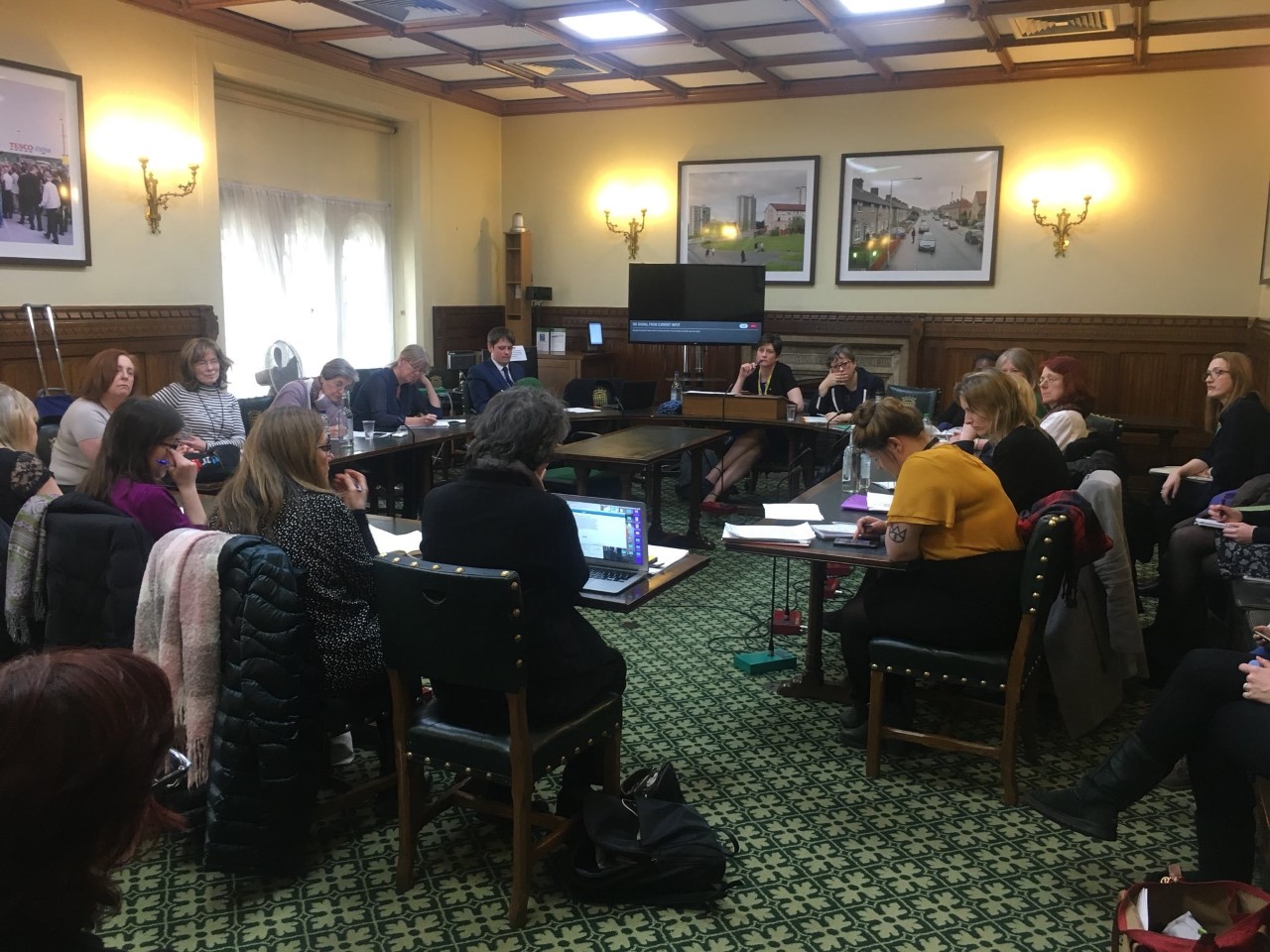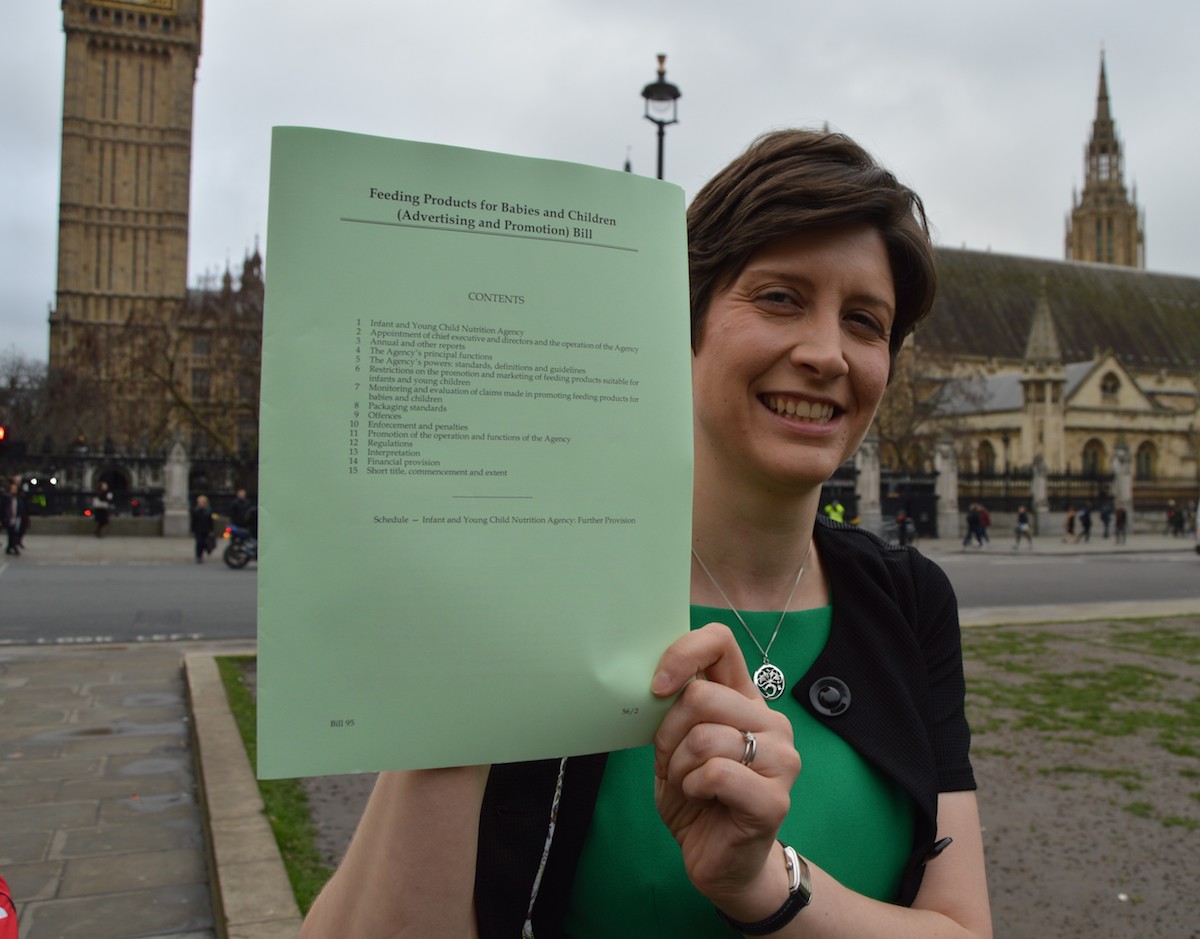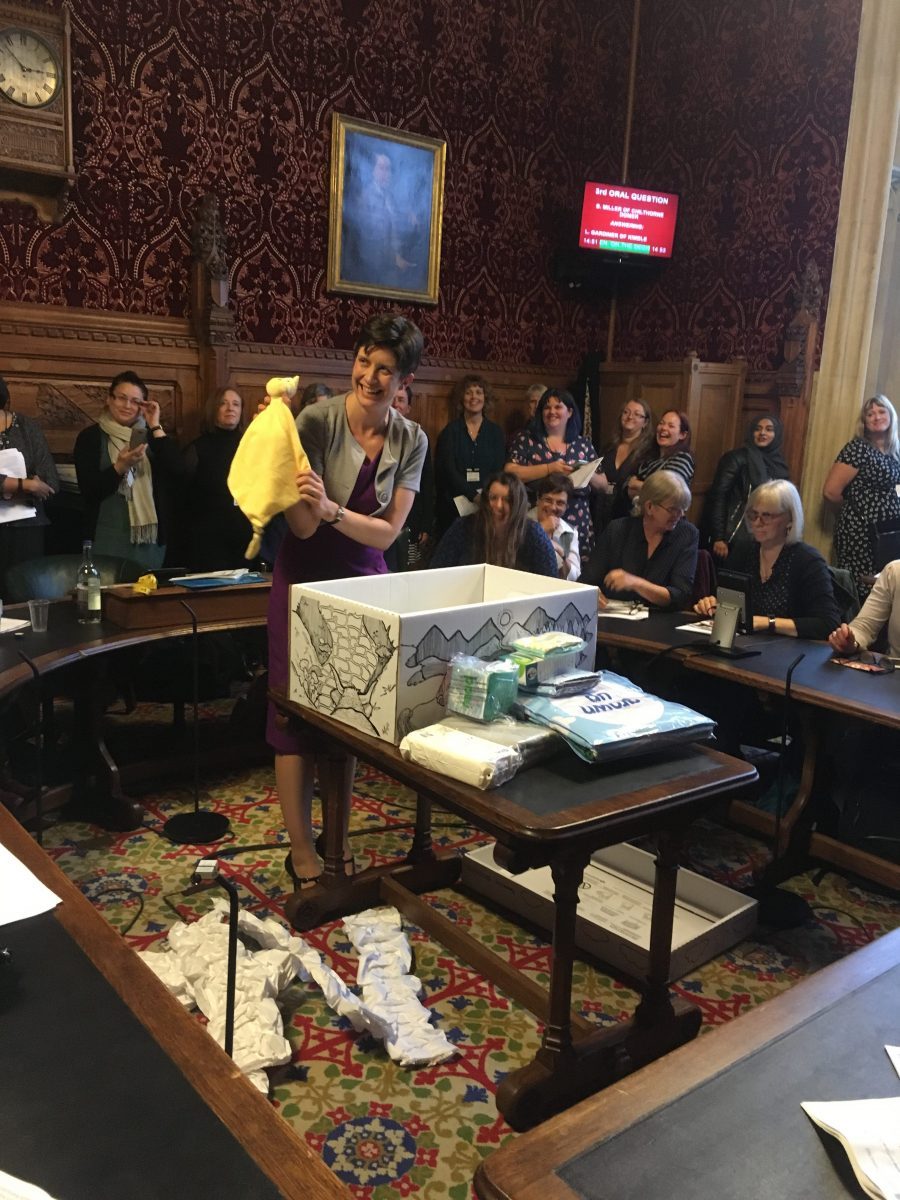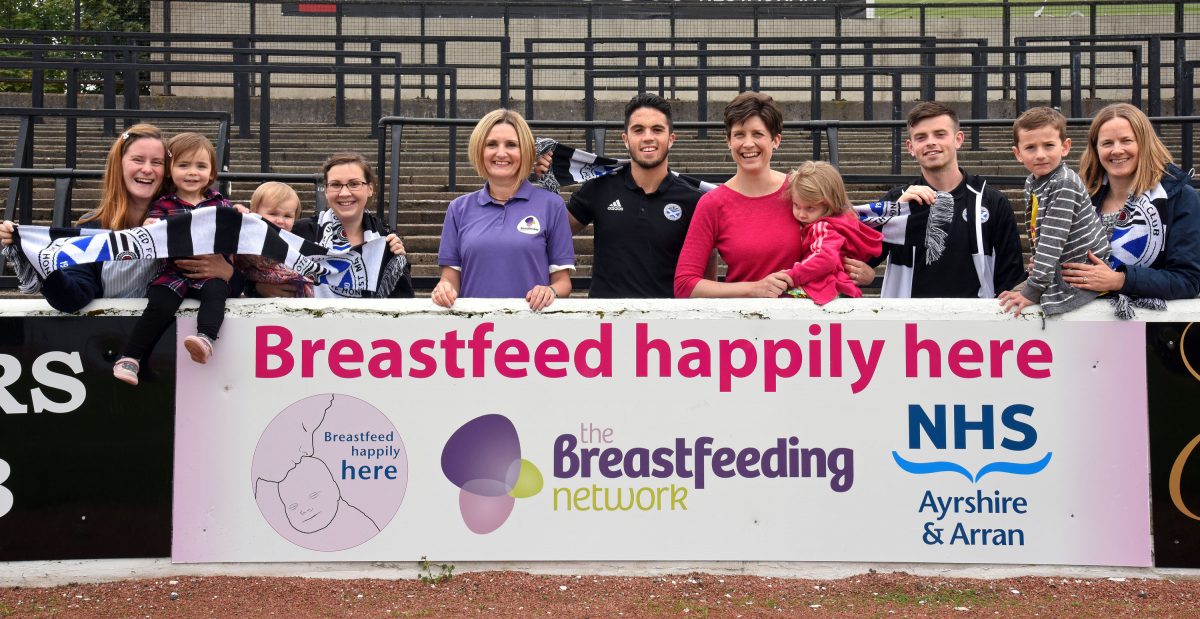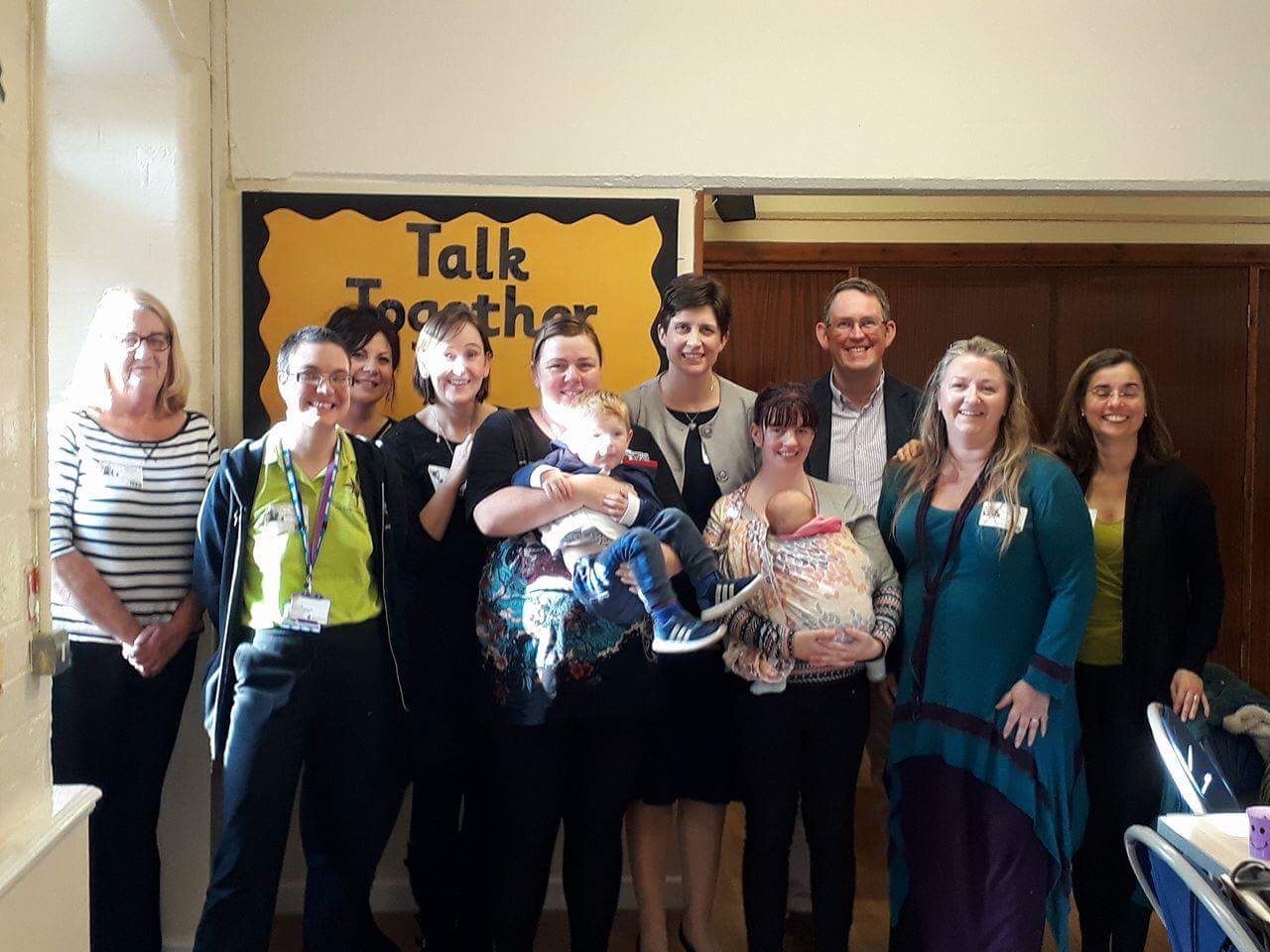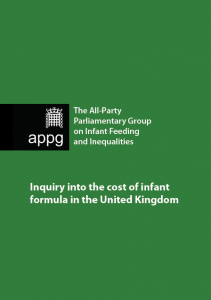
Parliamentary Inquiry highlights the need for more research into the impact of austerity and hardship on families who use infant formula.
Today at the Unicef UK Baby Friendly conference the All Party Parliamentary Group on Infant Feeding and Inequalities (APPGIFI) will launch findings from their inquiry into the financial impact of infant formula on family budgets in the UK.
Dr Helen Crawley, Director of First Steps Nutrition and author of the report will today tell delegates at the Unicef UK Baby Friendly Conference that the APPGIFI inquiry has found that the high cost of infant formula is reported to be having a seriously negative impact on a number of families in the UK, and that this may lead to unsafe feeding practices, and parents limiting their own food intake or that of other children, in order to make ends meet. Vulnerable and low income families, those with multiple births, homeless families, those living in temporary accommodation, asylum seeking families and those with no recourse to public funds are most at risk of experiencing ‘formula’ poverty.
Key findings include:
• The cost of infant formula was reported to have a serious impact on some family budgets and can range from £6.44 to £13.52 per week for powdered varieties, compared to £24.47 to £32.20 for ready to feed products.
• Families on tight budgets may resort to unsafe practices in order to feed their babies – like skipping feeds, watering down formula or adding cereal.
• Marketing and advertising were reported to have a significant influence on families’ choice of infant formula in spite of the fact that all infant formula must have a composition that conforms to UK regulations.
Both parents and health care professionals reported that they, or families they know, often go without essential items in order to be able to afford infant formula:
“I often go without basic toiletry essentials (particularly feminine care items) due to having to choose between those and formula.” – Parent respondent.
“I have cared for families who will have the money for formula but won’t have the money to buy essentials such as soap, fruit and veg, won’t wash clothes.” – Health Worker respondent.
“Formula is incredibly expensive, we struggled at times when we reached the end of my maternity pay. We are both professionals in public sector jobs, I imagine it’s almost impossible for low income families to cope with the costs. Families will be buying formula with the food shop and it will inevitably be affecting how much they can pay for food.” – Parent respondent.
Dr Helen Crawley, Director of First Steps Nutrition, said:
“We wanted to know more about the lived experience of families using formula and the financial impact on the family budget. We also looked at the determinants of formula choice, the advice and support available and how this affects feeding practices in the UK.
“There are many different types of infant formula marketed for babies and young children, which can be very confusing when you see them on the supermarket shelf, but the information you need as a parent or carer is really quite simple. The majority of infants who are formula fed should be given a first infant milk (Stage 1/First Stage) throughout their first year. Due to UK regulations all ‘first infant milk’ regardless of brand or price must conform to the same compositional regulations.”
Alison Thewliss MP, chair of the APPG on Infant Feeding and Inequalities said:
“We need to make sure parents are protected from misleading marketing and advertising and can access impartial, trusted information. For too long, powerful multi-national companies have been pushing the boundaries and circumventing existing legislation to promote their products to parents and families. The more we see new aggressive marketing techniques, the more we see ever higher prices for formula milk, which is ultimately borne by the consumer. We urgently need more research and investigation to find out what is happening nationally with infant feeding practices where food insecurity is already known to be a serious issue.”
Sue Ashmore, Unicef UK Baby Friendly Director, said:
“New mothers and families need more support – right from the very start – however they choose to feed their babies. Infant formula is extremely expensive and can be a significant proportion of a family’s weekly food budget. In a period where the cost of living has increased, but the wages in people’s pockets and healthy start vouchers have not kept pace, families are making difficult choices of going without in order to feed their children.
“This also sits in the context of cuts to community groups, children’s centres and breastfeeding support projects. Families need access to reliable sources of information as well as continued face to face support in order to make the best decisions for feeding their babies.”
The APPGIFI have made a number of recommendations including:
• Research is urgently needed into the potential for unsafe infant formula use in low income and vulnerable families and the potential risks this may pose to short and long term child health.
• Government should set up an independent body to regularly review data on infant feeding in the UK and work across departments to ensure that the needs of infants are considered in any changes to welfare, immigration rules, benefits and health and social care services.
• The UK should bring the International Code of Marketing of Breastmilk Substitutes and subsequent WHA resolutions (the Code) into UK law to remove advertising of breastmilk substitutes to the general public, and to ensure that health services are free from conflicts of interests.
• Public health messaging is needed which makes clear that there is no significant nutritional difference between brands of first infant formula and that they must all conform to the same compositional regulations.
Notes to editors:
About the Inquiry:
Evidence was collected over June 2018 from families and individuals, organisations that care and support pregnant women and families in a wide variety of contexts across health, social care and the community. The inquiry received 108 responses from both individuals (n=81) and organisations (n=27) throughout the UK. 36% of the individual responders self-identified as health care professionals, health visitors or breastfeeding counsellors and 64% self-identified as parents.
The full report can be accessed here.
About the All Party Parliamentary Group for Infant Feeding and Inequalities:
Cross-party parliamentary group for infant feeding and inequalities in the UK Parliament, chaired by Alison Thewliss MP.
About First Steps Nutrition:
First Steps Nutrition Trust is an independent public health nutrition charity that provides information and resources to support eating well from pre-conception to five years.
About the Unicef UK Baby Friendly Initiative:
Unicef works in public services to help new parents give their babies the love, care and nourishment they need to get the best start in life. Our Baby Friendly Initiative works with health professionals – from midwives and health visitors to neonatal nurses –to make sure every new mum gets expert support to nurture and feed their baby, whenever they need it. As part of a wider global partnership with the World Health Organization, the programme has revolutionised healthcare around infant feeding and parent-child relationships for all babies and mums. In everything we do, the mother and baby are our sole priority, because we know that the first days and weeks of a child’s life can determine his or her future.
For more information visit www.unicef.org.uk/babyfriendly
